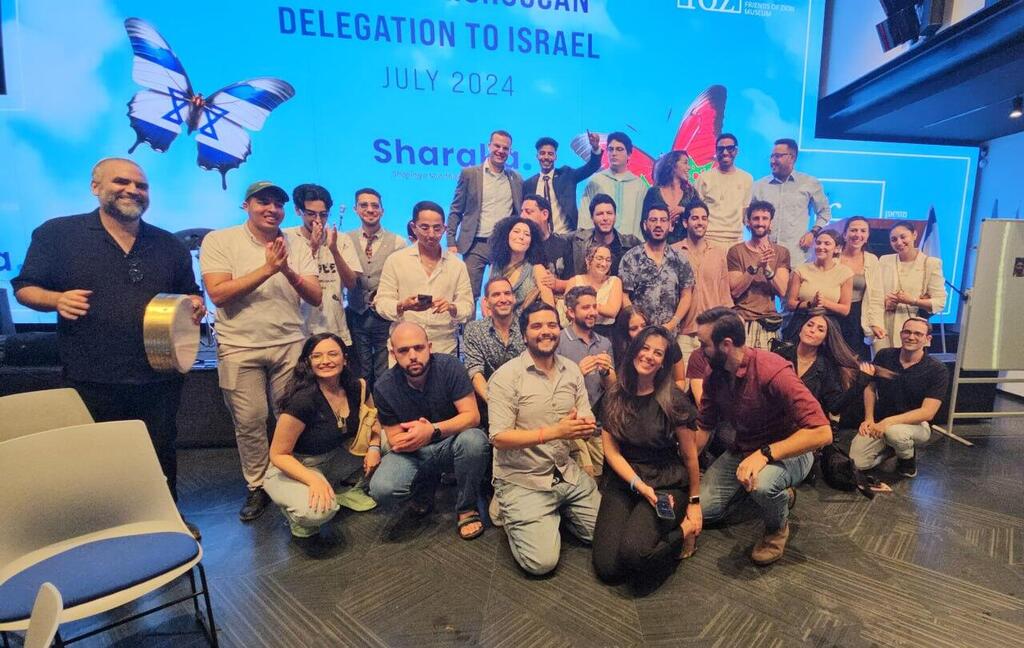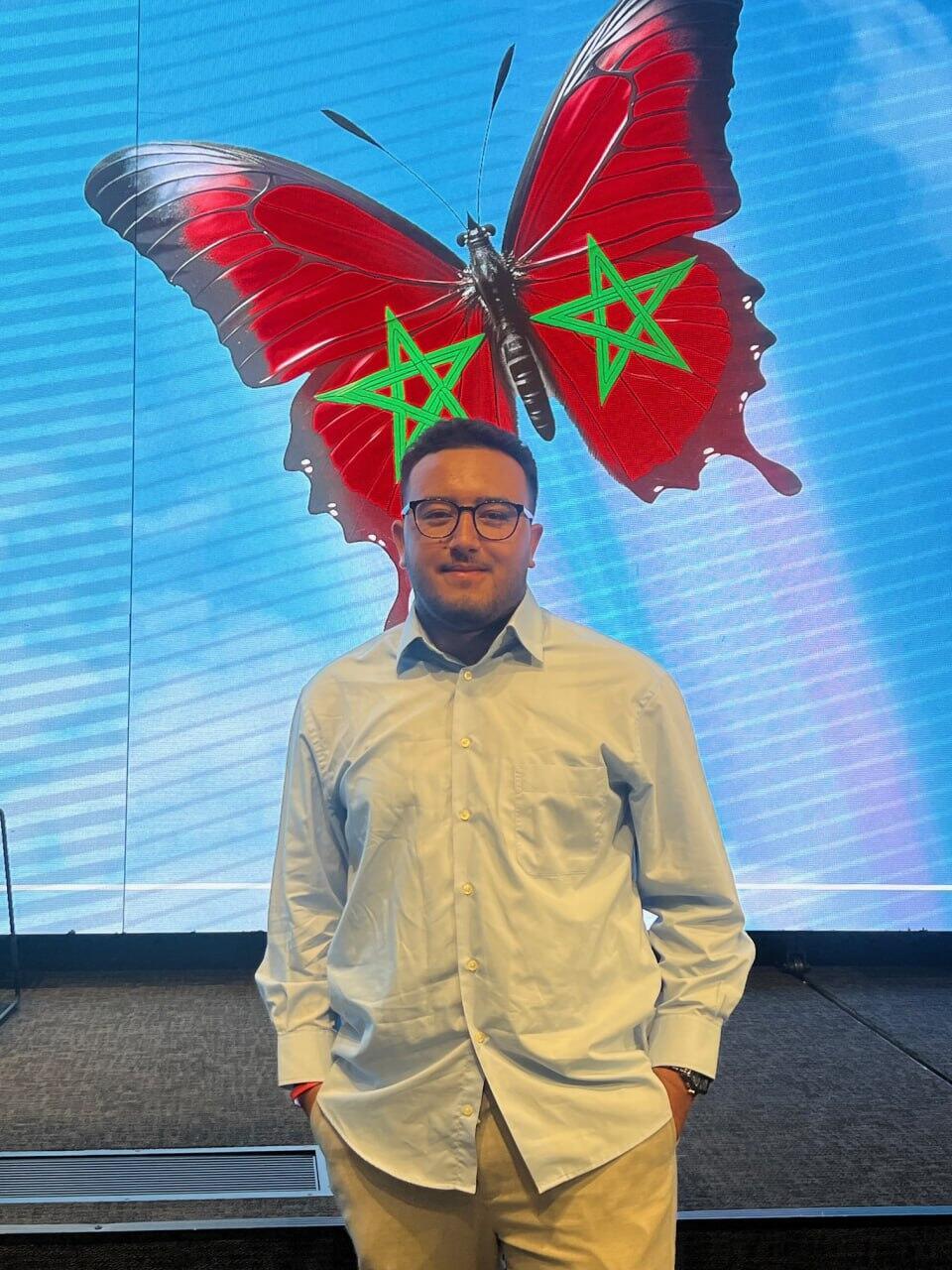Getting your Trinity Audio player ready...
A delegation of 28 influencers from Morocco is visiting Israel this week with Sharaka, an organization dedicated to promoting people-to-people diplomacy between Israel and peaceful Arab countries since the signing of the Abraham Accords in 2020.
“We are here to show support and say that even though these are hard times, we are still open to peace,” Ouadia Ben Mazzi, 21, told The Media Line.
Ben Mazzi, a Muslim from Morocco’s Atlas Mountains, spent Tuesday evening eating and dancing at the Friends of Zion Museum in Jerusalem. He acknowledged that relations between Israel and Morocco have shifted since the Hamas massacre and the start of the Gaza war on October 7. But some people in Morocco continue to believe in peace, he said.
Sharaka, named for the Arabic word for partnership, was founded after youth leaders from Israel and the Gulf began meeting to explore each other’s countries and cultures. The organization works to bring governmental agreements down to the popular level, involving Jews, Muslims, Christians, and Druze from across the Middle East.
Youssef Elazhari, director of Sharaka Morocco, described Jews and Muslims as members of the same family.
4 View gallery


Sharaka visitors enjoy an evening of speeches and entertainment at the Friends of Zion Museum
(Photo: Yossi Zeliger)
“We are cousins,” he told The Media Line. “We will never let terror separate us.”
The 2020 Abraham Accords normalized Israel’s relations with Morocco, the United Arab Emirates, and Bahrain. In 2021, Sudan signed on as well. Since the signing of the agreements, the countries have established substantial partnerships with Israel.
Following October 7 and Israel’s military campaign in Gaza, relations between Israel and the Abraham Accord countries have been strained. Few delegations have visited Israel publicly, and Israelis have been cautioned against traveling to several Arab countries, including some that recognize Israel.
A poll released in January 2023 by the Doha-based Arab Center for Research and Policy Studies and reported by Moroccan media showed that 75% of Moroccans viewed the October 7 attack as a legitimate resistance operation.
The four-day Sharaka trip focused on Holocaust education and included a visit to Yad Vashem, Israel’s official Holocaust memorial. The delegates also visited the Old City of Jerusalem and its holy sites for Jews, Christians, and Muslims. They met with top Israeli leaders, including Knesset Speaker Amir Ohana and former national security adviser Meir Ben-Shabbat and received briefings on the events of October 7 and their aftermath.
“Visiting the museum was very emotional, especially to see all the pictures of the people who were murdered just for being Jewish,” Ben Mazzi said of the trip to Yad Vashem.
Ben Mazzi said that he was raised in an antisemitic and anti-Israel home. After the normalization agreement between Israel and Morocco was signed, he came across a video of Moroccan Jews on social media. He described being shocked “to learn that Moroccan Jews in Israel still maintain the traditions, language, and food of the Moroccan people” and that many still love and appreciate the Moroccan king—sometimes even more than Muslims in Arab countries.
Since this realization, Ben Mazzi has learned more about Jews and Israel and sought out conversations with Israelis of Moroccan descent. This trip was his first time leaving Morocco.
Instagram food influence Salah Ghrissi, 34, from Fez, joined the delegation to help educate his followers and friends.
“I watch Al Jazeera and CNN, so I know there is more than one side to the story,” Ghrissi told The Media Line. “I feel very frustrated because I know my fellow citizens are tolerant and smart. Unfortunately, they only watch the news in Arabic, making them victims of bad propaganda.”
4 View gallery


Diaspora Affairs Minister Amichai Chikli addresses the Sharaka delegation
(Photo: Maayan Hoffman)
Diaspora Affairs Minister Amichai Chikli briefed the delegation at the Friends of Zion Museum. He later spoke to The Media Line about the importance of the Sharaka mission, describing it as a “very important” form of people-to-people diplomacy amid the challenges of the ongoing war.
“People-to-people diplomacy is a very effective way to maintain the relationship so we can rebuild the Abraham Accords later on,” he said.
“Eventually, we can revolve around creating a very good relationship with Morocco, the Emirates, and the Saudis,” Chikli said, noting that improved relations may take a long time to achieve.




